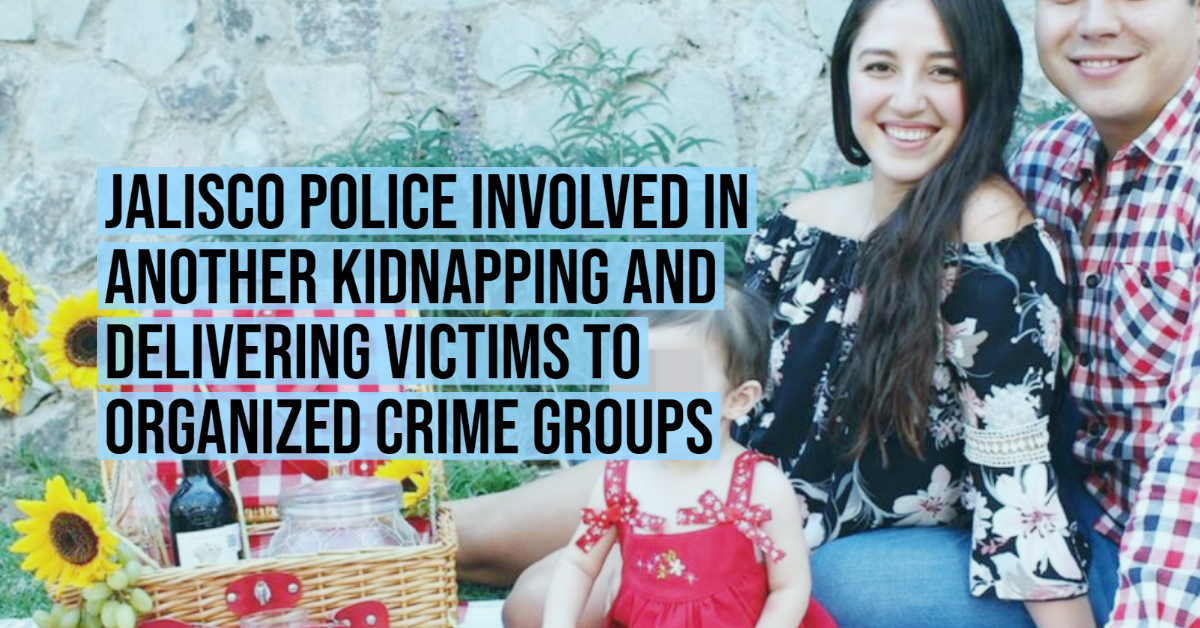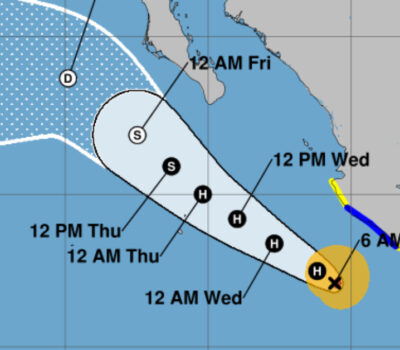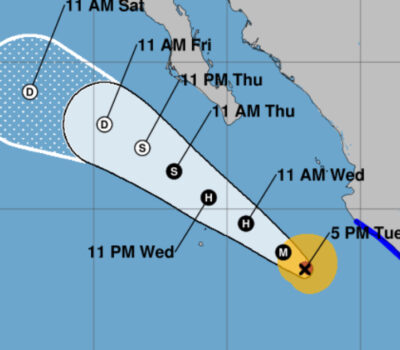The disappearance of five members of a family, including two minors, in the municipality of Acatic, Jalisco, highlights the collusion between police and organized crime in the State, and the security crisis Jalisco is experiencing.
Rogelio Barba, a security specialist in Jalisco, said that the links of the municipal and state police with criminal groups is constant in all the states of the country and facilitates illicit activities throughout Mexico.
“It is a systematic practice of criminal organizations, their operators in crime are part of an authorized crime, institutional crime. The collusion between the bad guys and those who should protect us is exposed, which leaves the safety of citizens in question,” he said in a recent interview.
On March 24, Virginia Villaseñor and her 9-year-old son, as well as her brothers Julio Villaseñor and Jimena Romo, along with her one-year-old daughter, disappeared in the municipality of Acatic, in the Altos de Jalisco, when they returned from a vacation in Mexico City.
Eight municipal police officers were involved in the disappearance, including the commissioner and the deputy commander, who detained them while returning home and later handed them over to a local organized crime group, according to the state attorney general, Gerardo Octavio Solís.
“We were able to obtain information regarding the participation of at least eight elements from that Acatic police station, while searching for the missing family, we worked on the information to obtain arrest warrants,” he explained.
Seven police officers, including a woman, were arrested for the crime of kidnapping and will face trial in the coming weeks, although the deputy commander of the corporation, who is a fugitive, has yet to be located.
After two weeks of searching that involved the Army, the National Guard, and the Prosecutor’s Office, last Thursday one of the minors was found abandoned in a vacant lot in the municipality of La Barca, about 100 kilometers away from Acatic, where she was found by a citizen who notified the Police.
Hours later, the remaining four members of the family were released in good health in the municipality of Zapotlanejo, about 30 kilometers from the place of disappearance.
Barba recalled that the accusations against municipal police in Mexico, and in Jalisco in particular, have been recurring for almost a decade and shows the poor conditions in which they carry out their work.
“Sometimes they are part of the payroll, and other times they are forced against their will. There are municipalities that surely do not exceed 60 policemen who are outnumbered, in strategy and violence and are sometimes subjected by criminal organizations to cooperate,” he said.
Two former police officers from that municipality are facing trial for the disappearance of two men in June 2020, who were last seen at a gas station in Acatic.
In February 2020, 160 police officers from the municipality of San Juan de los Lagos, in the Altos region, were disarmed and relieved of their duties after a federal investigation revealed possible infiltration by organized crime.
In January 2018, the Police of the municipality of Tecalitlán, in the south of the state, detained Italians Vincenzo Cimmino and Antonio Russo, and handed them over to an organized crime group in the region. The two men were in the area searching for a relative, Rafael Russo, who had disappeared days before.
At the beginning of April this year, two of the police officers accused of the incident received a 50-year sentence for the crime of kidnapping, although the whereabouts of the three Italians are still unknown.
Jalisco is the state with the highest number of disappeared persons and clandestine graves in Mexico, adding 12,105 cases between March 15, 1964, and April 8, 2021, of which 3,096 have occurred since December 2018, according to the report of the National Search Commission of the Mexican Ministry of the Interior released on April 7.
In 2020, 433 bodies of people buried in clandestine graves in Jalisco were recovered, representing 42.96% of the 859 bodies found nationwide in clandestine graves.
That state, which is home to the Guadalajara metropolitan area, the second most populated in the country, is the headquarters of the Jalisco Nueva Generación Cartel (CJNG), considered the most powerful criminal group in Mexico.
This month, the U.S. and Mexico governments sanctioned three people in Puerto Vallarta connected with cartel activities and a possible connection the the killing of Jalisco’s ex-governor in December of last year.
The disappearance of five members of a family, including two minors, in the municipality of Acatic, Jalisco, highlights the collusion between police and organized . . .












